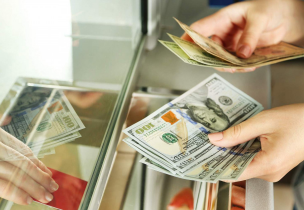Discover the best time to exchange currency in Vietnam with our comprehensive guide. Learn how to save money, avoid fees, and find the best rates for your travel or business needs.
See moreTraveling abroad is always exciting – new places to explore, new cultures to experience, and new people to meet. But there’s one practical detail every traveler needs to handle: foreign currency exchange for travelers. Whether you’re heading to Europe, Asia, or the Americas, knowing how to manage currency exchange properly can save you money, time, and hassle during your trip.
In this guide, we’ll cover everything from how foreign currency exchange works, where to exchange your money, tips for getting the best rates, and common mistakes to avoid. By the end, you’ll feel confident about handling money matters anywhere in the world.
Why Foreign Currency Exchange for Tourists Matters
Many tourists underestimate the importance of currency exchange. They assume they can simply swipe a credit card or withdraw money from an ATM abroad. While these options are convenient, exchange rates, hidden fees, and withdrawal limits can sometimes eat away at your travel budget.
Having a clear strategy for foreign currency exchange for travelers ensures that:
-
You always have local cash on hand for small expenses like taxis, street food, or souvenirs.
-
You minimize fees and avoid unfavorable exchange rates.
-
You reduce the risk of running out of money or paying extra charges.
-
You enjoy peace of mind knowing you’re financially prepared for your journey.
Understanding Foreign Currency Exchange
Before we dive into practical tips, let’s quickly look at how currency exchange works.
Foreign currency exchange simply means converting one country’s currency into another. For example, if you’re from the U.S. and traveling to Japan, you’ll need to exchange U.S. dollars (USD) for Japanese yen (JPY).
Exchange rates fluctuate daily due to economic conditions, supply and demand, and global markets. That’s why the rate you see today may not be the same tomorrow. Tourists usually get their currency through banks, currency exchange offices, ATMs, or airport kiosks.
Where to Exchange Foreign Currency as a Traveler
There are several options for foreign currency exchange for travelers. Each has its own pros and cons.
Banks in Your Home County
Exchanging your money at a bank in your home country before traveling is often considered one of the safest and most convenient choices. Banks provide a secure and trustworthy service, allowing you to know exactly how much local currency you will receive in advance and helping you avoid the stress of searching for exchange options upon arrival.
This option also gives you peace of mind, as you start your journey prepared with cash in hand. However, it is important to note that not every bank carries all foreign currencies, which means you may need to place an order ahead of time. In addition, while banks are reliable, their exchange rates are not always the most competitive, and some institutions may also apply service fees for the transaction.
Currency Exchange Offices
Currency exchange offices, such as BUCK EXC, are dedicated kiosks or shops that specialize in providing foreign currency services. They are commonly located in city centers, shopping malls, and popular tourist destinations, making them easy to access for travelers.
In many cases, these offices can offer more competitive rates than banks, which makes them an attractive choice for tourists looking to maximize the value of their money. However, it is important to be cautious, as some exchange offices charge high commissions, and exchange rates can vary significantly from one provider to another. For this reason, it is always wise to compare rates and fees before completing a transaction.
Airport Exchange Counters
For many travelers, airport exchange counters are the most convenient place to get local currency upon arrival, especially if cash is needed right away. These services are accessible at all hours, making them a reliable option for late-night or early-morning arrivals. However, this convenience often comes at a cost.
Airport exchange counters are well known for offering some of the worst exchange rates compared to other options, and additional service fees are also common. As a result, while they may be practical in urgent situations, they are rarely the most cost-effective choice for tourists.
ATMs Abroad
Using ATMs abroad is a popular choice for many travelers who prefer to withdraw local currency upon arrival. This option is often convenient, as ATMs are widely available in most countries and generally provide exchange rates close to the official market rate. However, the convenience can come with drawbacks.
Depending on your bank, foreign transaction fees or ATM charges may apply, and these can quickly add up over the course of a trip. In addition, daily withdrawal limits may restrict how much cash you can access at one time, which can be inconvenient if you need larger amounts of money.
Prepaid Travel Cards
Prepaid travel cards are another useful option for tourists, allowing you to load money in your home currency and spend in foreign currencies at locked exchange rates. They provide a safer alternative to carrying large amounts of cash, while also helping travelers stick to a budget.
Since most merchants accept these cards, they can be a convenient tool for everyday expenses abroad. However, there are some downsides to consider. Certain prepaid cards come with reload or withdrawal fees, and acceptance is not universal—smaller shops or local vendors may refuse them. For this reason, prepaid travel cards work best when used alongside other payment methods rather than as your sole option.
How to Get the Best Foreign Currency Exchange Rates
Getting the best value for your money is essential when managing foreign currency exchange for travelers. Here are some proven strategies:
-
Compare rates before exchanging. Use apps or online tools to track daily rates.
-
Avoid exchanging at airports or hotels. They typically offer poor deals.
-
Withdraw larger amounts at once. This reduces the number of fees charged per transaction.
-
Use a credit card with no foreign transaction fees. This is ideal for big purchases like hotels or shopping.
Check hidden fees. Sometimes an attractive exchange rate comes with high commissions. -
Time your exchange. If possible, exchange when your home currency is strong.
Safety Tips for Foreign Currency Exchange for Tourists
Carrying foreign cash requires some precautions to stay safe:
-
Don’t carry all your cash in one place. Split it between your wallet, hotel safe, and a money belt.
-
Be discreet when exchanging money. Avoid showing large amounts of cash in public.
-
Keep receipts. Some countries allow you to exchange leftover local currency back into your home currency only with proof of purchase.
-
Use trusted exchange providers. Avoid street vendors or unauthorized exchangers.
Common Mistakes Tourists Make with Currency Exchange
Many travelers lose money because of simple mistakes. Here are pitfalls to avoid:
-
Exchanging money at the last minute. This often forces you to accept bad rates.
-
Ignoring small fees. A few dollars here and there can add up significantly over a trip.
-
Relying only on cash or only on cards. Always carry a mix for flexibility.
-
Not notifying your bank. Some banks block cards used abroad for security reasons.
-
Overlooking local customs. In some countries, cash is king, while others rely heavily on digital payments.
Should You Exchange All Your Money at Once?
This depends on your travel style. Some tourists prefer exchanging a large amount upfront to lock in rates and avoid repeated fees. Others prefer smaller amounts to minimize risk if money gets lost or stolen.
A balanced approach is usually best: exchange enough for your first few days (transport, food, accommodation) and then withdraw more as needed.
Digital Solutions for Modern Tourists
Technology has made foreign currency exchange for travelers more convenient than ever:
-
Mobile banking apps allow international transfers directly into foreign accounts.
-
Multi-currency wallets like Wise or Revolut let you hold and exchange multiple currencies at great rates.
-
Payment apps such as Alipay, PayPal, or Apple Pay are increasingly accepted worldwide.
These solutions reduce the need for carrying large sums of cash, though acceptance varies by country.
Final Tips for a Smooth Travel Experience
-
Plan your currency needs in advance.
-
Mix cash, cards, and digital payment options.
-
Always check rates and fees before exchanging.
-
Keep emergency funds separate from daily spending money.
-
Stay updated on your bank’s international policies.
By following these tips, foreign currency exchange for travelers becomes less stressful and more cost-effective, leaving you free to enjoy your trip to the fullest.
Conclusion
Managing foreign currency exchange for travelers doesn’t have to be complicated. With a little preparation, you can avoid high fees, poor rates, and unnecessary stress. Whether you choose to exchange money before leaving, use ATMs abroad, or rely on prepaid cards, the key is to balance convenience, cost, and security.
Smart money management means more room in your budget for unforgettable experiences – from dining at local restaurants to exploring hidden gems. So before you set off on your next adventure, take time to plan your currency strategy. Your wallet will thank you.



